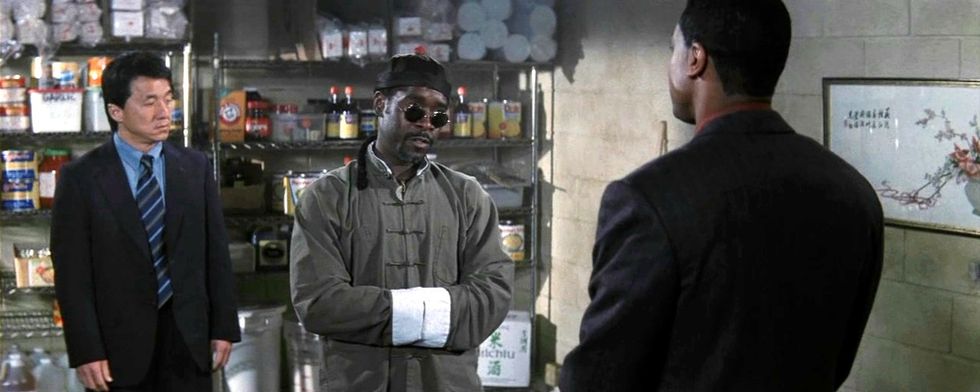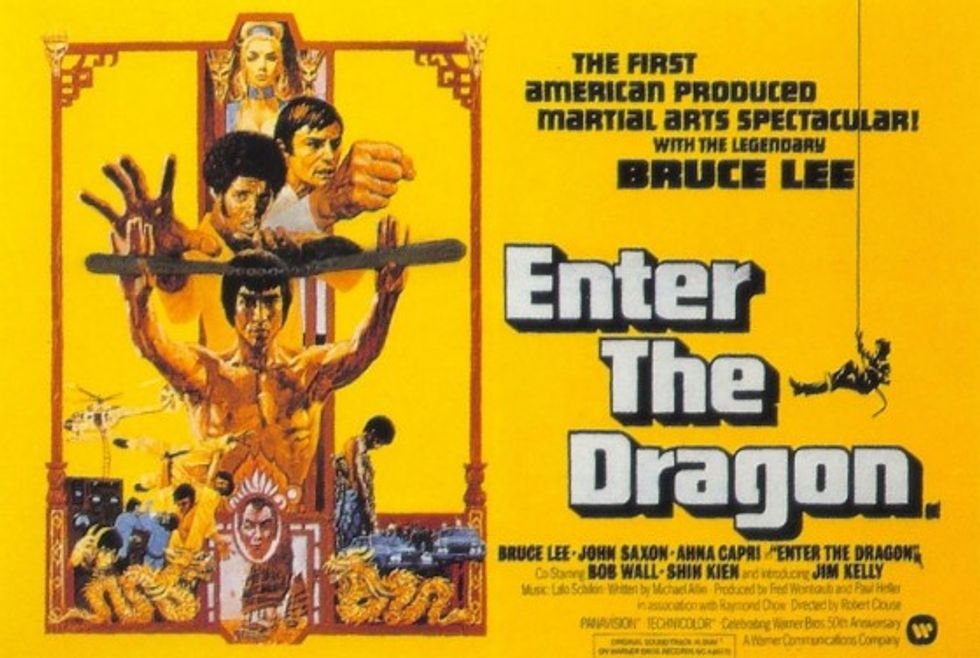Since Kendrick Lamar's hot new album, "Damn." dropped earlier this month, the internet has been buzzing. While the well-crafted lyrics and K-Dot's undeniably meticulous flow is accumulating a lot of the attention, Lamar's new moniker, "New Kung Fu Kenny," has seemed to stick with fans. The alias, inspired by Don Cheadle's "Rush Hour 2" character, the "original Kung Fu Kenny," is referenced throughout the album and is portrayed by Lamar in the "DNA" music video (which also features Don Cheadle as an interrogation officer).
Lamar's new persona also pays tribute to the Hong Kong films of the 1970's, much like Wu-Tang Clan did in the 90's. On the surface, it may seem odd that martial arts and hip-hop would have any connection. After all, martial arts teaches simplicity and detaching oneself from material possessions, while hip-hop places a spotlight on an excessive lifestyle including money, women, and heavy drug and alcohol use. If you compare the history of the two, however, the relationship becomes evident.
Kung Fu films from Hong Kong were often purchased in packages by New York City movie theaters to save money. They were also shown on TV through programs such as "Drive-In Saturday." The films, primarily those produced by Bruce Lee and the Shaw Brothers, depicted an underdog overcoming an oppressive organization, or unjust leader, using nothing more than willpower and their hands and feet. This theme of rising above injustice with so little resonated with the African-American community of this time period. While hate-blinded police officers were equipped with guns and clubs, the oppressed had their fists and a voice through music, leading to the birth of hip-hop. Martial arts reinvigorated the warrior instincts African-Americans lost during slavery and the time of Jim Crow Laws. The films also gave young black and brown children non-white role models to look up to, which was quite rare in the 70's and early 80's.
There is no denying that tensions between the oppressed and the oppressive still stream through the cracks of this nation, making a hero like "Kung Fu Kenny" just as relevant today as he would have been in the 70's. The persona could also turn some people onto Lamar's music that never listened to him prior to "Damn." Wu-Tang Clan actually got me into hip-hop when I started listening to them in high school due to their martial arts-inspired music videos, personas, and lyrical imagery.
If you want to learn more about the historical connection between martial arts and hip-hop, check out Shawn Setaro's fascinating article "Kung Fu Kenny is Just the Latest Example of Hip-Hop's Fascination with Martial Arts."




















